What are the benefits of reading and can it help boost your productivity?
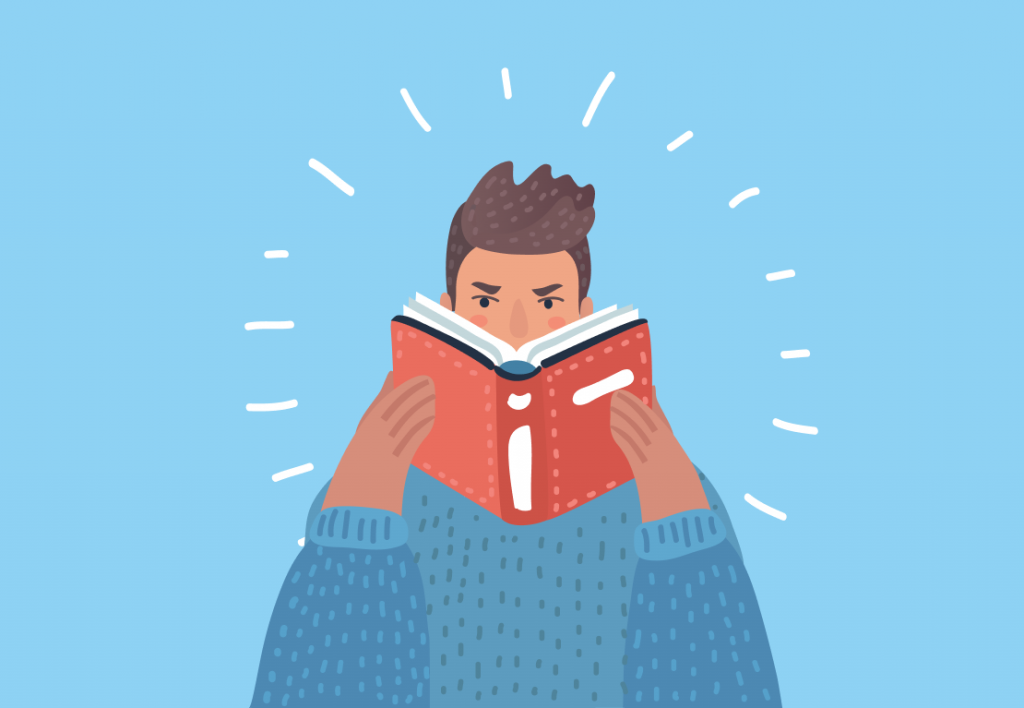
In this busy world where everyone is constantly trying to get work done, the benefits of reading are as overlooked as reading itself. That’s understandable because, after many hours of work, one’s concentration goes down as fatigue sets in.
According to a Pew Research Center survey, 23% of Americans didn’t read a single book in 2013. But did you know that reading answers a big, fat YES to the question, “Does reading improve concentration?” That’s right, it improves your brain’s ability to process information. And there’s more where that came from.
That’s why here we’re going to give you the six scientifically-proven reasons why you should be picking up a book again to do some productive reading in your spare time.
Want to get the most out of your time?
Try DeskTime for free!
Try free for 14 days · No credit card required.
By signing up, you agree to our terms and privacy policy.
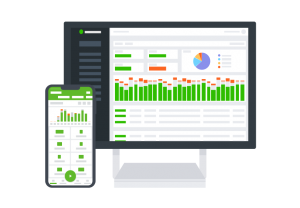
The benefit of reading #1: it can improve your concentration
One of the biggest problems for the brain today is a bombardment of information. It’s gotten so bad that our attention is down to just eight seconds or so, caused by our transition to receiving information that’s more visual now than ever before. That means advertisements, web images, and even work-related graphs and presentations all want our attention, not to mention the devices in our pockets that want it, too.
Thankfully, the one thing that can help you regain control of your attention and concentration is to read a book. Because the brain is like a muscle, the more it is trained, the better it works.
This is backed up by science:
One study has shown that there’s a strong link between one’s reading skills (such as reading accuracy and speed) and the ability to pay attention. Furthermore, the president and director of Haskins Laboratories, Ken Pugh, PhD, stated that reading is neurologically more demanding than speech or image processing which forces greater concentration.
Thus, as you read books, you’ll be able to maintain your focus for longer periods of time even when reading something during the day at work itself.
Benefit of reading #2: it can reduce your everyday stress levels
Work can be tolling, especially if you spend many hours doing it. We know that when you work too much, it can decrease your levels of physical health, mental health, and just general happiness. And then we have personal problems that can weigh down on us. But most of these effects are likely the result of stress itself, which causes one’s body to release stress hormones like cortisol.
What can help reduce this? As you may have guessed already, that’s one of the benefits of reading, and there are two studies to back up that reading reduces stress.
The first study was done in 2009 in the U.K. at the University of Sussex. Its researchers found that reading reduced stress better and faster (measuring a 68% reduction) than listening to music (61%), having a cup of tea or coffee (54%), taking a walk (42%), and even playing video games (21%).
Now if you’re wondering, “How does reading reduce stress,” the psychologists have an answer: reading works because it forces you to shift your focus and absorbs you into the book which effectively unwinds you. The best part? You only need to spend 6 minutes a day on silent reading to see the stress reduction.

The second study looked at the acute benefits of reading and compared it to yoga and humor. The researchers found that 30 minutes of reading reduces stress on the body as much as 30 minutes of yoga or humor.
The implication is that if you’re dead tired at the end of the day from work, you don’t need to do physical exercise to feel a reduction of stress, so it’s time to rethink just how productive reading actually is.
Benefit of reading #3: it can make you live an average of two years longer
It may be a surprise, or it may not be, but your job is likely killing you. And by killing, we mean “cutting your lifespan shorter,” which goes back to the idea that high levels of stress increase the likelihood of one’s having some chronic illness. This means that on average, an individual who experiences consistent heavy stress loses out on 2.8 years of his or her life according to a Finnish Institute for Health and Welfare study.
But there’s good news!
One of the benefits of reading is that it can increase one’s lifespan by as much as 2 years. This finding is based on over 3,500 individuals who were followed for roughly a 12-year period. Also, the study found that the more often one reads, the greater the decrease of one’s mortality rate compared to those who read less.
The takeaway? That reading can offset either in part or completely the effects of a stressful work life, prolonging your life. How’s that for motivation?
Benefit of reading #4: it can make you more empathetic
Being adept at navigating social situations is important especially at work. How you inquire about something and how you respond to what’s being said to you can be the difference between making someone upset and not.
Such skills come in handy when you have to deal with your boss, your co-workers, and sometimes the HR department. These skills can also be helpful when you get home, where you may have to deal with even more people—friends, family, and neighbor(s) to name a few. And if you’re tired, you’re less likely to put much effort into how you do.
That’s why we have another solid reason for why you should take some time out either after work or during work to read a book.

This reason is tied to the benefit of reading literary fiction, which can help you improve what’s known as your EQ (emotional intelligence) and ToM (theory of mind, the understanding of other people’s mental states and existence).
This is backed up by a study that found that those who read literary fiction as opposed to general fiction (sci-fi) are more empathetic. The authors concluded that the result of this study is “further evidence that habitual engagement with others’ minds, even fictional ones, may improve the psychological processes supporting intersubjectivity.”
Benefit of reading #5: a book before bed can help you fall asleep better
It’s no secret that work performance is directly tied to the quality of sleep, and that includes the number of hours one gets. Even though many already know this, oftentimes they have so much work that they are anxious, so when they go to bed they want to check their work-related emails. However, such a brain stimulus will keep one up at night. That’s why you want to turn to reading a real book instead of your phone.
As we mentioned previously, reading reduces stress, which should put you to sleep faster as it relaxes you. But there are two other benefits of reading in bed: you eliminate your exposure to your phone’s blue light, and you eliminate your exposure to information (like social media) that can induce wakefulness.

Invite structure in your workday!
Our all-in-one time management solution works wonders
Why’s this important? Because blue light is known to stimulate the production of melatonin and mess with your circadian rhythm, and it was shown in one study that social media use in bed is highly detrimental to the quality of sleep.
That being said, you’re probably thinking, “But I can’t see anything in the dark, there’s no way I can read a book.” In this case, we recommend a sub-3000 kelvin amber reading light like this one which blocks 99% of the blue light spectrum.
Benefit of reading #6: a real book helps prevent cognitive decline
As people get older, it’s only natural that they become more susceptible to Alzheimer’s, dementia, and other cognitive impairments, which can affect one’s ability to work effectively later in life (because working later in life, too, can help keep your brain sharp).

“Susceptible” here should not be taken to mean the same as “afflicted,” for the brain is like a muscle, and reading is like a dumbell—the more you train with it, the stronger (better) it works. This helps to stave off mental performance issues later in life based on research.
Now, before you go reaching for your Kindle or e-Reader, it’s worth noting that not all books provide these benefits of reading equally.
Science shows us that one of the reasons that reading a physical book is better for our brains is that when information is encoded into our memory, a spatial component is also encoded. In other words, when we remember something about a book, we remember the location it came from. This part of the memory is further enhanced when the book is physical because the tactile response sends signals to our brains at the time of encoding.
Last but not least, some studies show that there are special benefits of reading tangible material compared to reading the same thing on screens. Other studies confirm this as well, showing that our ability to comprehend the text depends on the medium through which it is received.
Our recommended list of books for you
While there are many, many productivity books out there, we’d like to share with you our five favorite books of all time to help you read more content that can benefit you in your personal and work life.
1: The 7 Habits of Highly Effective People: Powerful Lessons in Personal Change by Stephen R. Covey
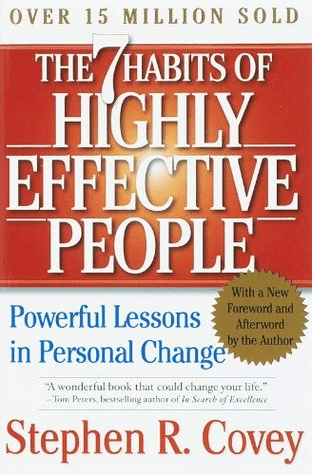
The book opens with an explanation of how many individuals who have achieved a high degree of outward success still find themselves struggling with an inner need for developing personal effectiveness and growing healthy relationships with other people.
The author, Covey, believes the way we see the world is entirely based on our own perceptions. In order to change a given situation, we must change ourselves, and in order to change ourselves, we must be able to change our perceptions.
How this book can help you become more productive:
Covey will teach you how to develop yourself within through being proactive and getting your priorities sorted, positioning yourself for “private” success. Then you’ll learn how to achieve “public” success, which is when you recruit those around you to help develop each other. By the end of the book, you’ll be able to put together the seven different habits of highly effective people as identified by him into practice, making you more a productive and effective person.
2: Getting Things Done: The Art of Stress-Free Productivity by David Allen
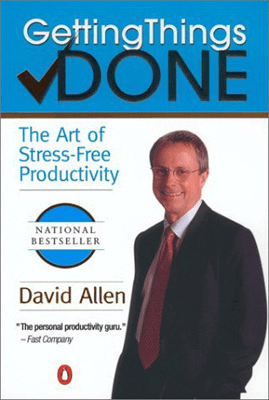
In Getting Things Done, veteran coach and management consultant David Allen shares the breakthrough methods for stress-free performance that he has introduced to tens of thousands of people across the country. Allen’s premise is simple: our productivity is directly proportional to our ability to relax. Only when our minds are clear and our thoughts are organized can we achieve effective productivity and unleash our creative potential.
To become more productive, this book will teach you how to:
- Apply the “do it, delegate it, defer it, drop it” rule to get your in-box to empty
- Reassess goals and stay focused in changing situations
- Plan projects as well as get them unstuck
- Overcome feelings of confusion, anxiety, and being overwhelmed
- Feel fine about what you’re not doing
3: Why We Sleep: Unlocking the Power of Sleep and Dreams by Matthew Walker
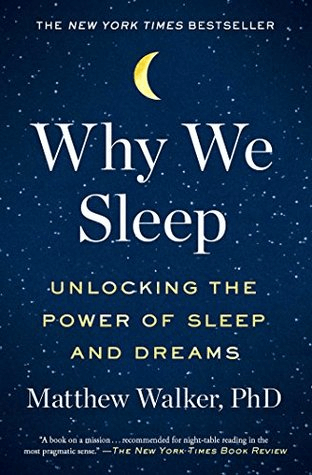
The Professor and Director of UC Berkeley’s Sleep and Neuroimaging Lab Matthew Walker explains what we’ve learned from decades of research and clinical experience on the topic of sleep. In this book, he uses knowledge gained from cutting-edge scientific breakthroughs to explain how we can use sleep to not only improve our learning (which makes us more effective and productive) but also how to re-energize ourselves to become more productive in business.
How this book can help you become more productive:
If you’re one of those people who believes that work trumps over sleep, you’re in for a surprise awakening. By reading this book, you’ll have a better understanding of how sleep works and what it does for you, including how it affects how you do work. By the end of it, you’ll want nothing less than to sleep more as you discover how much better you function on more sleep.
4: The 4-Hour Workweek by Timothy Ferriss
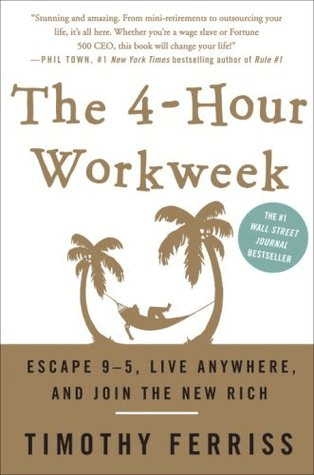
The author of this book, Timothy Ferriss, has spent more than five years learning the secrets of the New Rich, a fast-growing subculture that has abandoned the “deferred-life plan” and instead mastered the new currencies-time and mobility-to create luxury lifestyles in the here and now. Using his experience of the working world and how he became free of it, he gives answers on how you can do it, too.
How this book can help you become more productive:
The goal of the 4-hour workweek is to show you how you can be productive for yourself so that you can do the things you want to do. Whether you are an overworked employee or an entrepreneur trapped in your own business, this book will give you answers to many questions on how to work more effectively.
5: Don’t Sweat the Small Stuff… by Richard Carlson
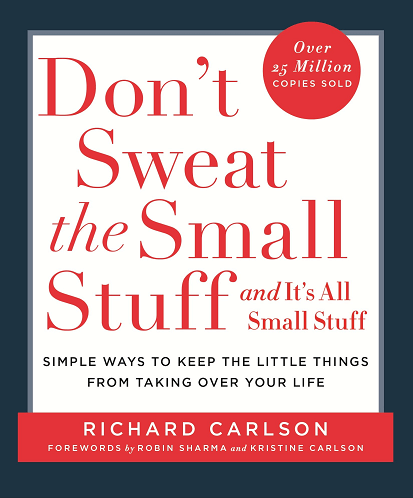
This book shows you how to keep from letting the little things in life drive you crazy. In thoughtful and insightful language, author Richard Carlson reveals ways to calm down in the midst of your incredibly hurried, stress-filled life.
You can learn to put things in perspective by making the small daily changes he suggests, including advice such as “Think of your problems as potential teachers”; “Remember that when you die, your ‘In’ box won’t be empty”; and “Do one thing at a time.” You should also try to live in the present moment, let others have the glory at times, and lower your tolerance to stress.
How this book can make you more productive:
To be productive, one must be less stressed. Carlson teaches how to achieve this with creative suggestions like writing down stubborn ideas and then seeing how one can make them softer. He also teaches how to be less anxious to learn to trust one’s intuition. Lastly, you’ll learn to make your actions more thoughtful, caring, and meaningful, which will make you more calm and more effective in your daily life.
Want more book recommendations? Check out this article!
Did you find this article useful? Give it a clap!
Psst! You can clap more than once if you really loved it 🙂